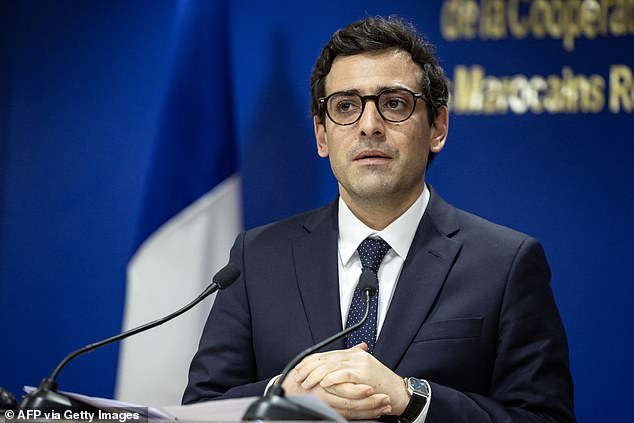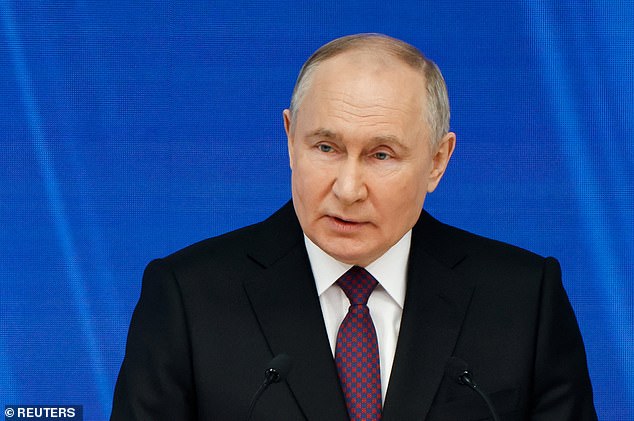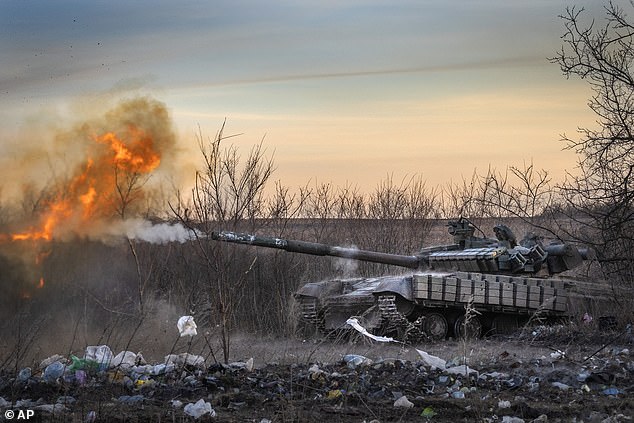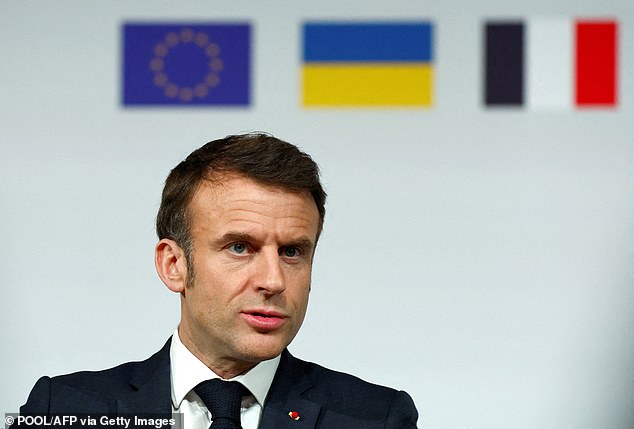- Stéphane Séjourné said the fall of Ukraine could cause refugees to flee across Europe
<!–
<!–
<!– <!–
<!–
<!–
<!–
Europe will be inundated by “10 million migrants” if Vladimir Putin wins his war in Ukraine, France’s foreign minister has warned.
Stéphane Séjourné said the country’s collapse could lead to a wave of Ukrainian refugees fleeing across the continent after being displaced from their homes.
Speaking to France Inter radio on Friday, the Foreign Minister also noted that Putin’s war against the West would not stop in Ukraine, adding that the French government “has information” that suggests Moldova could be its next target.
Séjourné said: ‘First of all, there is a risk that Ukraine will collapse and this risk has consequences.
‘We are talking about 10 million Ukrainians who could leave Ukraine in the event of a collapse. And we know very well and have information that Russia will not stop there.”

French Foreign Minister Stéphane Séjourné (pictured) has warned that Europe will be inundated by “10 million migrants” if Vladimir Putin wins his war in Ukraine.


The Foreign Minister also noted that Putin’s war (pictured) will not stop in Ukraine.


A Ukrainian tank from the 17th Tank Brigade fires at Russian positions in Chasiv Yar, the site of fierce fighting with Russian troops in the Donetsk region, on February 29.
The minister added that he agreed with French President Emmanuel Macron’s suggestion that the West may have to send ground troops to Ukraine to fight Russia if it wants Moscow to be defeated.
Séjourné said: “A very clear framework has been established: bring Russia under control without going to war with Russia. And in that framework nothing is ruled out.
‘It contributes to strategic ambiguity, but at the same time puts us on the right side of history. I am very happy with it.
His comments came days after Putin threatened to bomb the West after accusing NATO and the United States of “preparing to attack” Russia.
Responding to the threat, Séjourné said: ‘When we decided to send military equipment, it raised the nuclear threat. When we decided to send tanks, it raised the nuclear threat. When we decided to send planes, it raised the nuclear threat.
‘So now we’re taking it to the next level, ruling out anything, and he’s raising the nuclear threat.
‘We are in a fragile situation with the preparations for the European elections and the Olympic Games… These are your services, our public services, our transport, our hospitals.


French President Emmanuel Macron speaks during a news conference at the end of the international conference aimed at strengthening Western support for Ukraine on February 26.
‘Imagine for two minutes that we had no hospitals in the Paris region, that transport was paralyzed due to Russian cyber attacks. “All this means that Russia has changed its position.”
The Russian president, 71, said in an annual address to the nation on Thursday: “They are preparing to attack our territory and, using the best possible forces, the most effective forces to do so.”
“But we remember the fate of those who attempt to invade our territory, and of course their fate will be far more tragic than anything we can face.”
Putin repeatedly praised Russia’s vastly modernized nuclear arsenal in his speech, adding as a warning to the West: “You have to understand that we too have weapons, weapons that can defeat you on your own territory.”
‘Of course, all this is very dangerous, because it could lead to the use of nuclear weapons. Don’t you understand that?’
The Russian despot also chillingly assured that “strategic nuclear forces are in a state of full readiness for guaranteed use,” but warned that the use of nuclear weapons would amount to the “destruction of civilization.”
